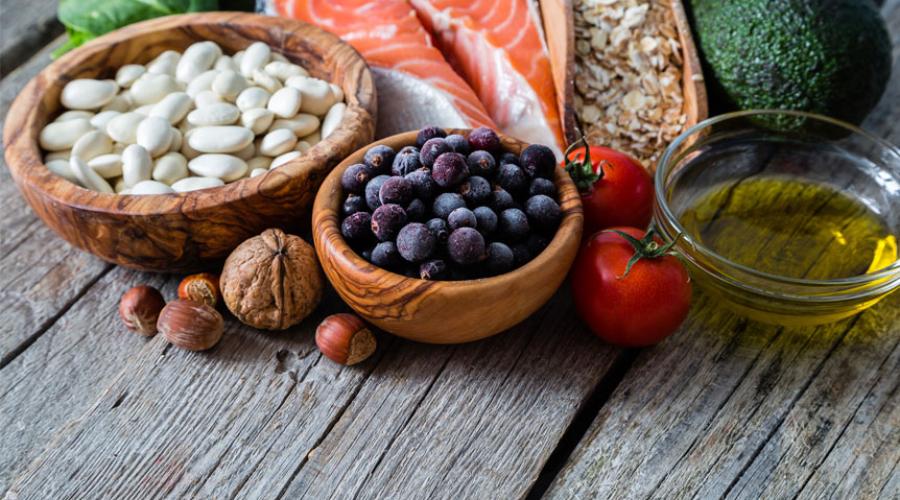
Despite an abundance of food, most Americans don’t get enough of the nutrients they need.
In fact, fewer than 15 percent of Americans meet the Healthy Eating Index criteria for a healthy diet, according to a study by Elizabeth Frazão that was sponsored by the USDA.
Part of the problem stems from us eating more added sugars and fats. Americans typically consume up to 40 percent of their daily energy (calories) from added sugars and fats, according to a report by Center for Public Health Nutrition researcher Adam Drewnowski.
Who Is Most ‘At Risk’ for Nutrient Shortfalls?
Older adults, pregnant women, and people on restricted diets are at even higher risk of not getting the nutrients they need from their usual diet and needing more daily nutrition. Also, people who eat a lot of processed or fast foods and fill up on snacks may be lacking in vital nutrients.
Many take dietary supplements to bolster their nutrition. Older individuals may take B12, for example, because our bodies tend to lose the ability to absorb this important vitamin as we age.
Vegetarians and pregnant women may take an iron supplement to ensure adequate iron intake and avoid anemia. Also, even beyond the essential vitamins and minerals that are considered vital to sustaining human life, there are other nutritious compounds that benefit health, such as a special type of CoQ10, called Ubiquinol, to support heart health.
There are hundreds of nutritive ingredients out there. Which ones are particularly important and often overlooked?
Commonly Missed Nutrients
Here’s our list of the nutrients you don’t want to skip, and (whenever possible) how to get them through your diet.
Calcium
You hear it all the time. Calcium helps you sustain strong teeth and bones.
According to the National Institutes of Health (NIH), a typical 55-year-old woman should consume 1,200 mg of calcium each day. Many of us don’t consume that much each day.
Milk, yogurt, tofu, low-fat cheeses, breakfast cereals, and calcium-fortified orange juice are good sources of calcium. (One cup of milk has about 300 milligrams of the mineral.) Broccoli, dark leafy greens, and sardines are also good choices.
Potassium
Potassium is a nutritional superhero and a regulator of sodium. The American Heart Association considers potassium an important part of any plan for blood pressure health.
A 2015 study in the journal Osteoporosis International is one of several suggesting this nutrient helps keep bones healthy, and potassium citrate may reduce the risk of kidney stones in certain people.
Michael Greger, a physician and New York Times bestselling author, insists the vast majority of us don’t get the 4,700 mg of potassium we need each day. He says the problem is most often caused by not including enough plants in our diets.
You probably know that bananas are a good source of potassium, with each fruit containing more than 400 milligrams of the mineral. But potatoes, beets, broccoli, clams, and lentils are even richer in potassium.
Fiber
Most of us associate fiber with relieving constipation. In fact, high-fiber foods can also help lower cholesterol, control blood sugar levels and encourage a healthy weight. Most of us don’t eat enough dietary fiber.
A 45-year-old woman should consume at least 25 grams of fiber each day; more for a man and slightly less for an older woman.
Beans, peas, nuts, and lentils are good sources of dietary fiber. When possible, choose whole grains because they tend to contain more fiber and fewer refined carbohydrates. Choose breads, crackers, and cereals that have “whole wheat flour” or “whole grain flour” as the first words in their ingredient panels.
Ubiquinol form of CoQ10
Though not classified as an essential daily nutrient, CoQ10 plays a critical role in making the cellular energy used by our heart, brain, and other organs. It’s also been shown to support heart health and healthy aging.
We make less CoQ10 as we age or with the long-term use of cholesterol-lowering statin medicines. Our bodies also have a harder time turning conventional CoQ10, called ubiquinone, into the active, antioxidant form of CoQ10 called Ubiquinol.
The Ubiquinol form of CoQ10 is one of the strongest known anti-oxidants and responsible for many of the benefits people associate with CoQ10. In healthy young adults, most of the CoQ10 in their bodies exists in the Ubiquinol form.
Like CoQ10, Ubiquinol is difficult to consume in significant quantities through diet alone. Getting 100 milligrams of Ubiquinol each day – the amount that is generally recommended for adults in Ubiquinol supplement labeling, would require eating 120 cans of sardines or 50 cups of spinach.
Ubiquinol is available as a dietary supplement. If you’re over the age of 40, it’s best that you take Ubiquinol so that your body does not have to convert CoQ10 into Ubiquinol.
Vitamin D
Meet the “sunshine” vitamin. Your body produces vitamin D naturally when the skin gets exposed to sunlight. However, most American vitamin D intake comes from fortified dairy products.
Like other nutrients such as CoQ10, Vitamin D can be difficult to get through diet alone.
For years, doctors have known that getting enough Vitamin D is important for strong bones. The nutrient is also important for muscle function, brain development, a healthy immune system and a properly functioning heart.
Vitamin D is not like most other vitamins. Our bodies can make the nutrient on its own when our bare skin is exposed to sunlight. For some people, getting about 20 minutes of sunlight every day is sufficient. However, with the widespread use of sunscreens, and recommendations from healthcare professionals to limit sun exposure, this may not be a viable option for most people.
Like other nutrients such as CoQ10, Vitamin D can be difficult to get through diet alone. Dairy products are excellent sources of Vitamin D because they are usually fortified with the vitamin. Salmon, tuna and rockfish are also relatively good sources.
This is why many people also take a Vitamin D supplement, especially if they’re averse to dairy. Doctors sometimes prescribe a high dosage Vitamin D supplement to patients who are deficient in the nutrient. In this case, Vitamin D levels need to be monitored through periodic blood tests.
Omega 3 Fatty Acids
Few nutrients have been studied as much as Omega 3 fatty acids, which may help reduce the risk of heart disease when consumed as part of a healthy diet rich in seafood and low in saturated fat. These healthy fats are also critical to brain growth and development in infants, may support eye health, and could even help with mood.
The USDA has not published a daily recommended amount for Omega 3 fatty acids, although their 2010 Dietary Guidelines for Americans recommend eating seafood twice a week.
Choose fish rich in Omega 3s include salmon, trout, herring and tuna. They can also be found in flaxseed, canola oil and walnuts. Omega 3 dietary supplements (especially those with EPA and/or DHA) are a particularly popular way to consume these healthy fats.
Vitamin B12
Vitamin B12 is a water-soluble vitamin needed for proper red blood cell formation and brain health. Because it’s flushed out of our bodies fairly easily, we need to replenish our supply almost every day.
Most adults need 2.4 micrograms of Vitamin B12 each day. Many kinds of meat and seafood are rich in Vitamin B12. For this reason, vegans and vegetarians may struggle to get enough and can become deficient unless they take a B12 supplement.
Some older adults have difficulty absorbing Vitamin B12 due to a lack of hydrochloric acid in their stomachs. In these cases, a dietary supplement containing Vitamin B12 can also be helpful.
It’s Important to Talk to Your Doctor
The nutrients mentioned in this article are important to good health. When possible and practical, try to consume them in lean meats, fish, fruits and vegetables, especially leafy green vegetables.
Be sure to talk to your doctor or pharmacist before you make any significant dietary changes or start taking a new dietary supplement. Your health care provider can help you make sure those changes are safe and right for you.












